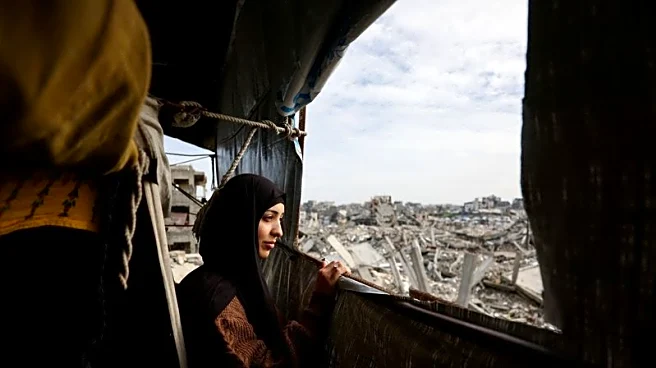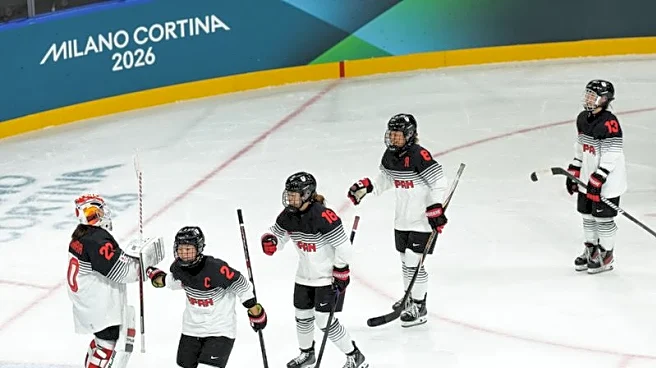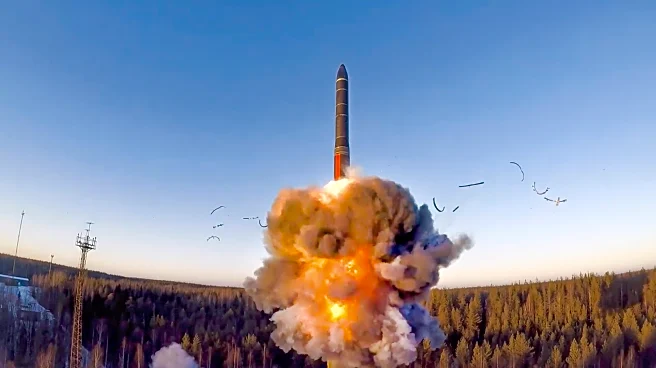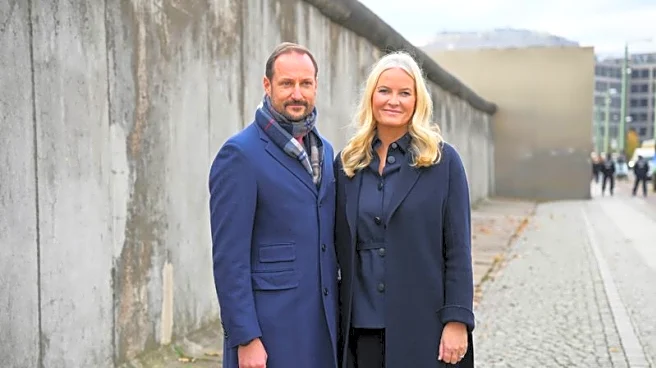What is the story about?
What's Happening?
Germany has recently halted military exports to Israel, particularly those that could be used in the ongoing conflict in Gaza. This decision comes amid significant protests in Berlin, where approximately 50,000 people demonstrated against the Israel-Hamas war, demanding an end to the humanitarian crisis in Gaza. The protests, organized by around 50 groups including Amnesty International, called for European Union sanctions against Israel. Germany, traditionally a major supplier of military hardware to Israel, has shown skepticism about its position on arms exports in light of the worsening situation in Gaza. The protests in Berlin were part of a broader movement across Europe, with similar demonstrations occurring in cities like Düsseldorf and Geneva.
Why It's Important?
The halt in military exports from Germany to Israel marks a significant shift in international relations and defense policy. As one of Israel's leading suppliers of military equipment, Germany's decision could impact Israel's military capabilities in the Gaza conflict. This move also reflects growing international pressure and public sentiment against the humanitarian impact of the conflict. The protests highlight a strong public demand for policy changes and increased scrutiny of arms exports, potentially influencing future EU policies and international diplomatic relations. The situation underscores the complex balance between national security interests and humanitarian concerns.
What's Next?
Germany's decision to halt military exports may lead to diplomatic discussions within the EU regarding collective actions or sanctions against Israel. The protests could prompt further policy reviews and debates on arms exports and humanitarian aid. Additionally, the German government may face internal and external pressures to reassess its foreign policy stance concerning the Israel-Gaza conflict. The ongoing protests and international attention may influence future negotiations and peace efforts in the region.
Beyond the Headlines
The protests and Germany's policy shift may have broader implications for international arms trade regulations and ethical considerations in defense policies. The situation raises questions about the role of public opinion in shaping foreign policy and the ethical responsibilities of nations in conflict zones. It also highlights the potential for civil society movements to influence government actions and international diplomacy.


















